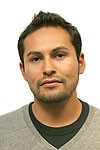People make decisions based upon available information. This adage – above all – is my favorite because it provides insight into the processes people use to decide to engage life with the information they have. Magazines and TV shows don’t always provide the helping hand that we look for. Often, they don’t role model what realistically happens when sex goes wrong or when relationships get rough.
Cosmopolitan shouldn’t solely decide what you do with your sexual health, just as watching Lauren’s squabbles on “”The Hills”” probably won’t solve your relationship problems.
If UA students are going to increase their awareness of sexual health and enjoyment, then we are going to have to become better consumers of information, even if this means going outside of our typical pool of information sources: friends, family, Cosmopolitan, Maxim, Men’s Health, etc. We may feel comfortable with those sources because they are familiar and readily available – much easier to access than new ones.
The Daily Wildcat reported Tuesday that the UA fell 14 spots to 31st nationally in Trojan’s annual “”report card”” assessing sexual health awareness. What this really means is that we are not accessing or being introduced to information that would increase our awareness. How is it that we are being less informed at a learning institution?
While higher learning institutions are creating today’s leaders and innovators to hopefully mend our sometimes broken and tumultuous world, when do we learn about life between saving the world and organic chemistry? We are taught how to be doctors, lawyers, architects, artists and modern dancers, but when do we learn about the nuances of sexual encounters and relationships? Some of the time, it is monkey-see, monkey-do. We see our friends making poor choices, and then model our own choices after them, thus perpetuating the cycle of poor decision-making. I agree that when people have questions regarding sex, they should ask their general practitioner; however, I understand this is not always a comfortable subject to raise with a perceived authority figure.
Who do we ask about where to get condoms and what type fits best? What lube should I buy that won’t give me a yeast infection? And one of my favorite questions, how late is too late to take the morning-after pill? Believe me, being sexually active during college in the Bay Area and having plenty of friends in crisis over their sexual health and relationships has provided me with plenty of insight. Unless we are completely celibate, we desire to have sex, dream about it, look for it on Craigslist or go to the fourth floor at the Main Library to see it happen.
Not surprisingly, I just read a BBC article called “”Pillow Talk”” espousing public discourse of sexual health communication. Does this mean that we are becoming a more enlightened society? Not necessarily. Not everyone has the same access to sexual health information. Some people are probably better connected than others, so their networks of communication are stronger and most likely carry updated information about health. The idea of strengthening your social networks for stronger flows of information is essentially the idea behind what is termed “”social capital.””
When people say, “”It isn’t what you know, but who you know,”” they are right. One thing that I’ve learned is that you don’t have to know everything out there. Within your social network, there will be someone who has access to information you are looking for.
At times, you’ll have to take the lead. Just the other day I was helping a good friend in her search for a reliable “”starter”” vibrator. I had helped plenty of friends in the past who were reluctant to explore their sexuality, either because of embarrassment or a lack of information about their curiosities. It is during these moments that people experience a sense of empowerment – they realize they are sexual beings.
Just as easily as people are empowered, there are the unfortunate cases, mostly targeting women, where people have been disempowered and devalued through sexual assault. This is why rallies like “”Take Back the Night”” are so important in ending the silence about sexual assault and rape that too often occurs.
No longer should you have to remain silent about your sexual health. Maybe if some of our fine political leaders were more resourceful and better consumers of information, they might not have to sneak around in men’s restrooms and ruin their careers. By all means, explore and be safe.
Jeremiah Simmons is a second-year public health graduate student. He can be reached at letters@wildcat.arizona.edu.









